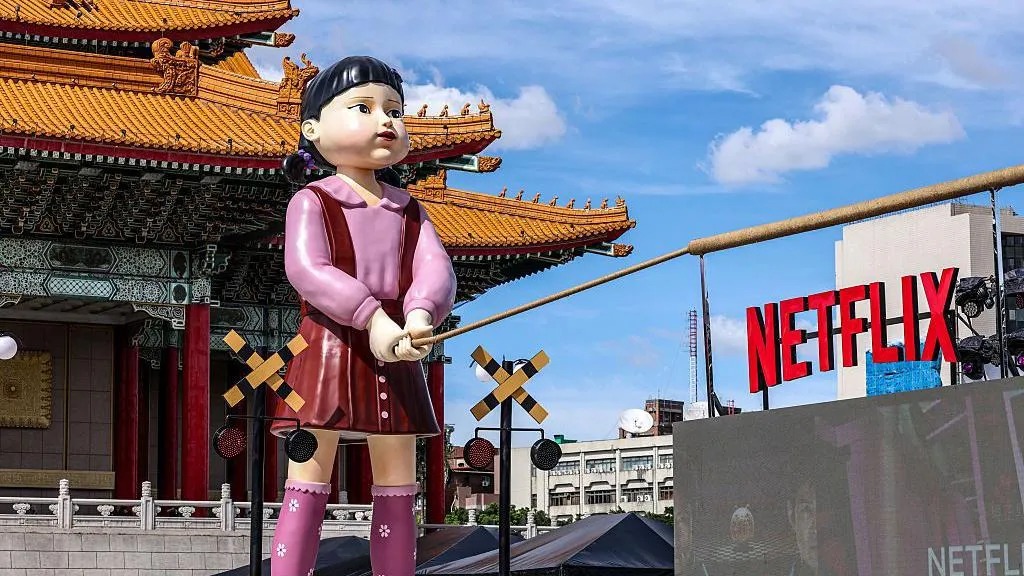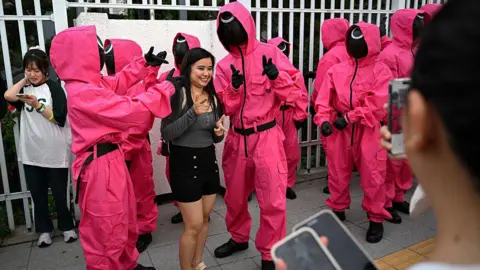As Squid Game Ends, South Koreans Confront the Reality That Inspired It
- Jul Tue, 2025
- in Entertainment & Media

As Squid Game Ends, South Koreans Confront the Reality That Inspired It
As the global phenomenon Squid Game wrapped up its third and final season last Friday, millions of fans worldwide bid farewell to the Emmy-winning Netflix series that reshaped the landscape of Korean drama and sparked global conversations on capitalism, inequality, and humanity.
While fans celebrated the blockbuster's closure with cosplay parades and social media tributes, many South Koreans found themselves reflecting on the very society that inspired its dystopian tale.
“It reflected reality so well — like how in real life, it’s just full of ruthless people ready to crush you,” reads a widely upvoted YouTube comment. The sentiment was echoed by countless others who felt the series’ themes hit too close to home.
Rooted in Reality
Squid Game’s success lies not only in its storytelling but in its raw depiction of South Korea’s societal challenges — including youth unemployment, precarious labour, debt, and social pressure.
The protagonist Seong Gi-hun’s backstory as a laid-off car factory worker mirrors the real-life 2009 SsangYong Motor strike, a pivotal and violent moment in South Korean labour history. Other characters – from a migrant worker to a crypto scammer – embody familiar societal archetypes, making the drama eerily realistic.
Film blogger Jeong Cheol Sang noted in his review: “The drama may be fictional, but it feels more realistic than reality itself.”
Despite these heavy themes, a celebratory parade in Seoul marked the show’s end on Saturday, featuring giant replicas of the show’s iconic killer doll and masked guards.

A Cultural Juggernaut
Squid Game is more than a TV show — it’s a cultural milestone. It joins the ranks of BTS and Parasite in showcasing K-culture’s global dominance. Newly elected South Korean President Lee Jae Myung has expressed a desire to capitalise on this momentum to export Korean culture further abroad.
There are even rumours of a US spin-off, stoked by the finale’s final scene where Cate Blanchett plays a Korean game in a Los Angeles alley.
Lead actor Lee Jung-jae described the show’s end as “open-ended,” adding, “It poses a lot of questions to the audience... I hope they reflect on them.”
Divisive Finale
Season three focused on Gi-hun’s attempt to take down the Squid Game organisation — but ultimately, he fails, sacrificing himself to save another player's child.
The ending sparked polarised reactions. Some fans accused the show of straying into performative kindness that felt disconnected from the show’s otherwise gritty realism.
“The characters' excessive altruism was disturbing... prioritising strangers over their own families for no real reason,” read a viral comment on the Korean forum Nate Pann.
Others argued that the bittersweet, unresolved finale was fitting: “That’s just not the world we live in, and it’s certainly not the one Gi-hun lived in,” one YouTube user commented.
Creator Hwang Dong-hyuk acknowledged the mixed feedback: “In season one, the shock and freshness worked. But by seasons two and three, expectations were sky high... everyone expected something different.”
Hope Amid Despair
Still, many viewers found hope in Gi-hun’s final act — a symbol that kindness can survive even in a brutal system.
“That paradox — of cruelty and warmth coexisting — is what made the finale so moving,” said Mr Jeong. “It made me reflect on myself. As someone who has worked in counselling, I’ve questioned whether kindness can change anything. That’s why I call this ending beautiful.”
As Squid Game bows out, it leaves behind more than cliffhangers — it leaves questions about society, morality, and the cost of survival that fans, particularly in South Korea, will be grappling with long after the credits roll.
